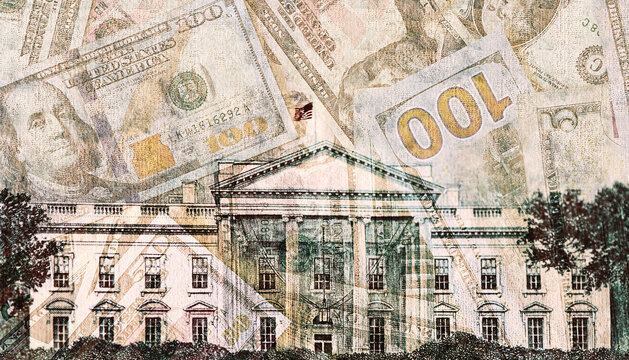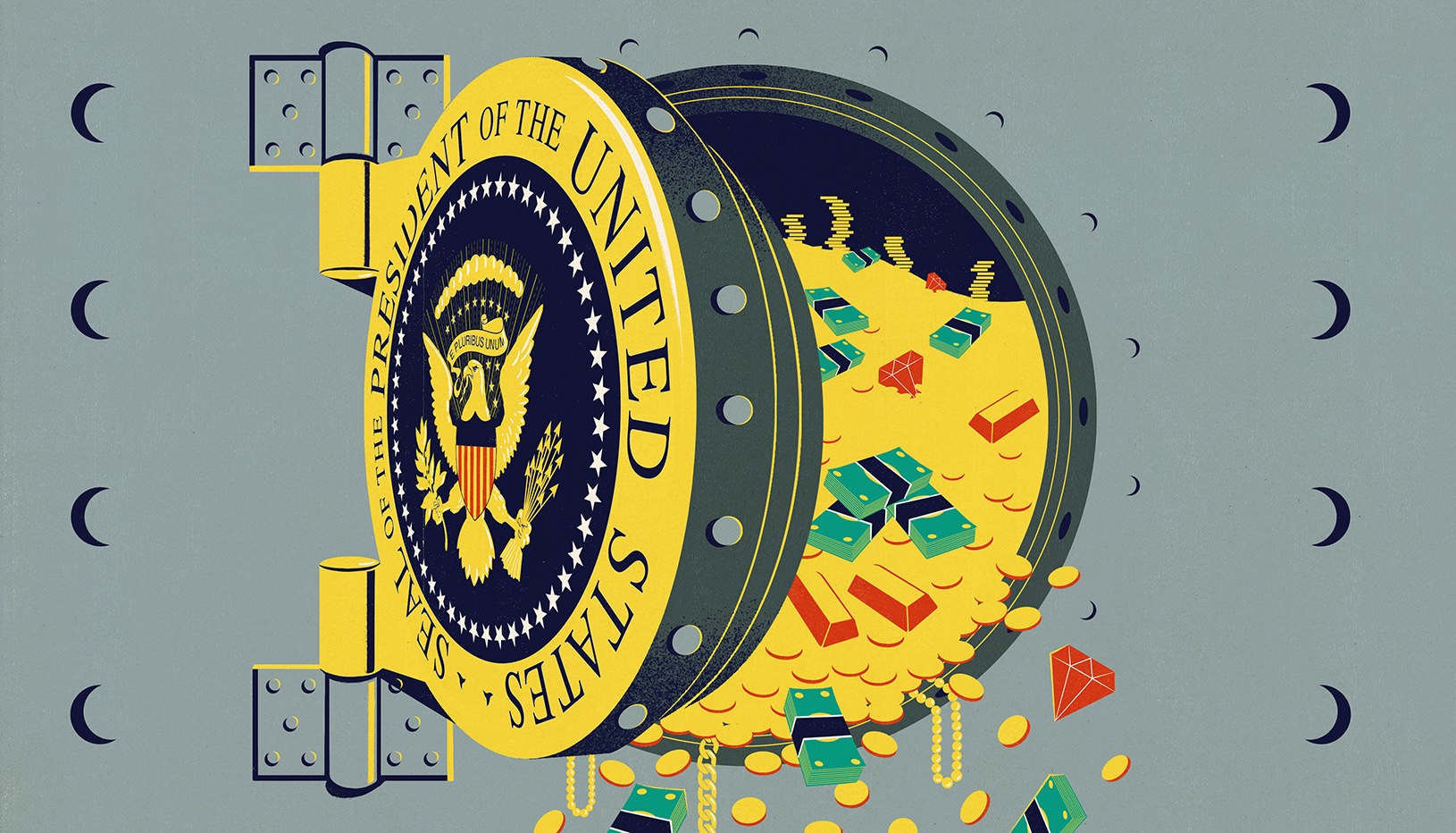
How Congress Can Rein in Surging Political Corruption
Federal lawmakers can protect the American public by passing a new law to fully implement the Constitution’s oldest anticorruption safeguards.

Part of
Corruption in American government has reached unprecedented levels. From self-dealing by the president and other executive branch officials, to congressional insider trading, to ethics scandals at the Supreme Court, it can feel like too many at the highest levels of government are putting their own interests ahead of those of the American people. And in most of these cases, they can do so without breaking a single law.
This has to change. Congress can start by giving real teeth to some of the nation’s oldest anticorruption safeguards: the Constitution’s Foreign and Domestic Emoluments Clauses. As we explain in a new report, these provisions could be used to curtail some of the worst abuses, particularly those coming from the White House. But they need to be fully enforced, which will require new legislation.
Corruption is hardly a new problem, but the abuses taking place now are unlike anything seen in generations. President Trump and other senior administration officials have openly used their positions to enrich themselves, blurring the line between public service and private gain like never before. Trump and his Middle East special envoy, Steve Witkoff, for example, have raked in huge sums from foreign nationals and entities with ties to foreign governments through their cryptocurrency holdings and overseas real estate deals. Trump has also accepted a luxury jet from a foreign country and even demanded a $230 million taxpayer-funded payout from the Department of Justice that would be approved by his own appointees.
Ethics scandals have also plagued Congress, including the conviction of former New Jersey senator Robert Menendez for taking bribes from the Egyptian government. Supreme Court justices, too, have faced scrutiny for accepting lavish travel and gifts from wealthy donors who have business before the Court.
This behavior has real consequences for everyone. The reported deal to give the nation’s scarcest and most advanced microchips to the United Arab Emirates is a stark example. Past administrations jealously guarded this technology because of the crucial role it plays in cybersecurity and military applications that impact national security. But despite the UAE’s close ties with China’s military, the Trump administration apparently included access to chips in negotiations over cryptocurrency and real estate deals that financially benefit the Trumps and Witkoffs. The gifted jet from Qatar raises similar concerns given that country’s role in a number of major flashpoints for U.S. foreign policy around the world. And of course, government payouts to the president and other federal officials divert taxpayer dollars at a time of record deficits.
The framers of the Constitution knew the risks of corruption all too well. Intimately familiar with the injustices and abuses that flowed from rampant corruption in European monarchies, they tried to insulate federal officials from improper influences to prevent split loyalties and ensure government serves the interests of the American people.
That foundational principle lies at the heart of the Emoluments Clauses — the only anticorruption safeguards written directly into the Constitution. The Foreign Emoluments Clause bars the president and other federal officials from accepting “any present, Emolument, Office, or Title, of any kind whatever, from any King, Prince, or foreign State” without the consent of Congress. The Domestic Emoluments Clause applies specifically to the president, providing them a fixed salary and barring “any other Emolument from the United States, or any of them.”
Despite their importance to the founders, the Emoluments Clauses received little attention until recently. Congress played a watchdog role in the early republic, routinely exercising its authority to approve or deny specific gifts to federal officials. And in 1966, Congress passed the Foreign Gifts and Decorations Act to establish a statutory process requiring officials to turn over most foreign gifts to the U.S. government.
Enforcement wasn’t a problem throughout most of American history, however, because officials generally complied voluntarily. Presidents from both parties typically avoided conflicts of interest by limiting their holdings to the most basic financial assets or transferring them to a blind trust. They also proactively sought guidance from the Justice Department to avoid even the appearance of impropriety.
That changed when Trump refused to meaningfully divest from his companies during his first term, resulting in payments to those companies that appeared to violate the Emoluments Clauses. Now, with even more sprawling business entanglements, the potential for unlawful emoluments is greater than ever.
The collapse of voluntary compliance and the corresponding increase in violations has exposed the gaps in emoluments enforcement: The Constitution doesn’t define what counts as an emolument or how the clauses’ prohibitions should be enforced.
Congress can close these gaps. A new law clearly defining the meaning of an emolument, establishing procedures for disclosure and divestment, and ensuring independent enforcement would restore a fundamental safeguard envisioned by the framers and neglected for too long.
No single reform can eliminate corruption or fully repair the public’s faith in government. But codifying the Emoluments Clauses would be a powerful start, reaffirming the principle that public office is a public trust.
More from the Corruption in America collection
-
Trump Targets Independent Campaign Finance Watchdog in Latest Ouster
The president moved to fire the Democratic chair of the Federal Election Commission, opening the door to weaponizing the agency for political ends. -
Past Presidents Have Tested Ethics Norms — This Time Is Different
A gifted jet from Qatar and crypto transactions raise novel questions about presidential self-enrichment. -
What Is Political Corruption and What Can We Do About It?
It hurts ordinary Americans in concrete ways, and the risk has never been greater given today’s unprecedented mixing of private wealth with political power.










